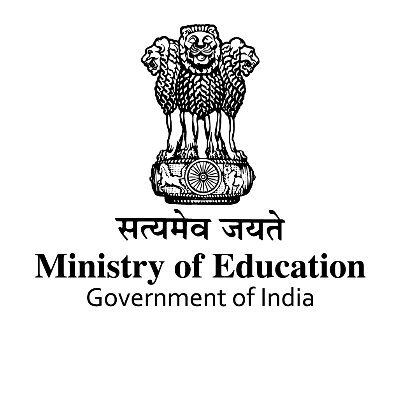Webinar on “Examination and Assessment Reforms” under Shikshak Parv Initiative
New Delhi: A webinar on Examination and Assessment Reforms organised under Shiksha Parv, a series of Webinars to highlight the salient features of the New Education Policy (NEP 2020) on 21st September, 2020. Prof. Sridhar Srivastava, Joint Director, NCERT was the coordinator. Prof Yagnamurthy Sreekanth, Principal Regional Institute of Education, Mysuru; Dr Joseph Emmanuel, Director Academics, CBSE and Shri Surrender Singh, National Teacher Awardee were the key speakers. The webinar witnessed some great presentations from the speakers.
The major recommendations of NEP 2020 regarding assessment reforms were highlighted in the presentation of Prof. Shridhar Srivastava. He began by tracing the timeline of assessment practices in India from Pre-independence era to today. In terms of assessment, while National Policy on Education (NPE) 1968 recommended a shift in the focus of evaluation from certification to improvement in learning, NPE 1986 suggested elimination of excessive element of chance and subjectivity, de-emphasizing memorization, introduction of Continuous and Comprehensive Evaluation (CCE), use of grades in place of marks and introduction of semester system from secondary stage in a phased manner. Today, the New Education Policy 2020 (NEP-2020) emphasizes on transforming assessment for optimizing learning and development of all students.
Prof. Srivastava explained that NEP-2020 focuses on – regular, formative and competency-based assessment, promoting learning and development of students and testing higher-order skills (analysis, critical thinking and conceptual clarity etc.). The goal of NEP-2020 is to transform the culture of assessment.
He appreciated the provision in NEP-2020 regarding support for Gifted Students. Gifted/Talented students will be encouraged to pursue realm beyond the general school curriculum.
Prof. Srivastava concluded his presentation by calling on all stakeholders to work together for the successful implementation of NEP-2020 to fulfil the aspirations of 260 million students, their parents, teachers and the school system.
Prof. Yagnamurthy Sreekanth started his presentation by quoting the recommendation of Radhakrishnan Commission (1948-1949)- “If there is one thing to be reformed in education, it is the examination system”. He acknowledged that over the time India has moved from examination to evaluation and now to assessment. Still, more work needs to be done. He explained that research shows that students learning improve through active participation. Retention is significantly higher when learning involves discussion, practice by doing and teaching others.
Prof. Sreekanth detailed the benefits of formative assessment. ‘Assessment for learning’ and ‘assessment as learning’ are critical. He said that, formative assessment is an important tool for integrating teaching-learning and assessment. It also minimizes the load on teachers of documentation and encourages child- centred and activity based pedagogy. The focus is on competency development rather than content memorisation, which makes the assessment non-threatening and stress free for the students. Formative assessment is useful for broadening the scope of assessment by way of including self-assessment, peer-assessment besides teacher assessment, focusing on learning rather than evaluation of achievement, reposing faith on teacher leads to motivation and enhancing self confidence in pupils.
Dr. Joseph Emmanuel’s presentation focused on the Plan of Action for assessment reforms from the perspective of an implementing agency, namely CBSE.
Dr. Emmanuel acknowledged that the present Board Examinations have become high stakes with a lot of emphasis on marks. He highlighted the steps CBSE is taking to change this. Internal Assessment is conducted in all subjects and given due weightage of 20% in final examination to distribute the burden. CBSE has also incorporated different sets of questions such as objective type questions (MCQs and other types), source- based and case-based questions etc. to focus on higher level competencies beyond recall and understanding. He specified that CBSE has started two levels Mathematics Examination –Basic and Standard in 10th class to cater to different kinds of learners and reduce overall student stress levels. A similar model will be replicated in 12th class as well
Furthermore, Dr. Emmanuel informed the audience that CBSE has come out with handbooks and manuals as steps towards Competency-based education. CBSE has started handholding school leaders to kickstart transformation of assessment practices. It has come out with a Handbook for Principals, where principals are guided in their role of pedagogical leaders. Recently, CBSE has released a Handbook on 21st Century Skills, he added. There are also handbooks for teachers and students available such a as ‘Cogito’ and ‘The Question Book’–A series on Thinking skills for students and Teacher Energized Manuals (TERM) of Science and Mathematics.
Shri Surrender Singh shared the practitioner’s perspective on assessment. He mentioned that the pattern of examination has remained unchanged for a very long time. The main aim for students has become getting good marks. Society too gives preferential treatment to those who attain high marks. He opined that it is time that the main aim of examination should shift towards all-round development of students. He stated that assessment should facilitate attainment of competencies specified in terms of learning outcomes in a holistic manner during teaching learning process. The focus should be on holistic child development and assessment of all the related areas should go hand in hand.

